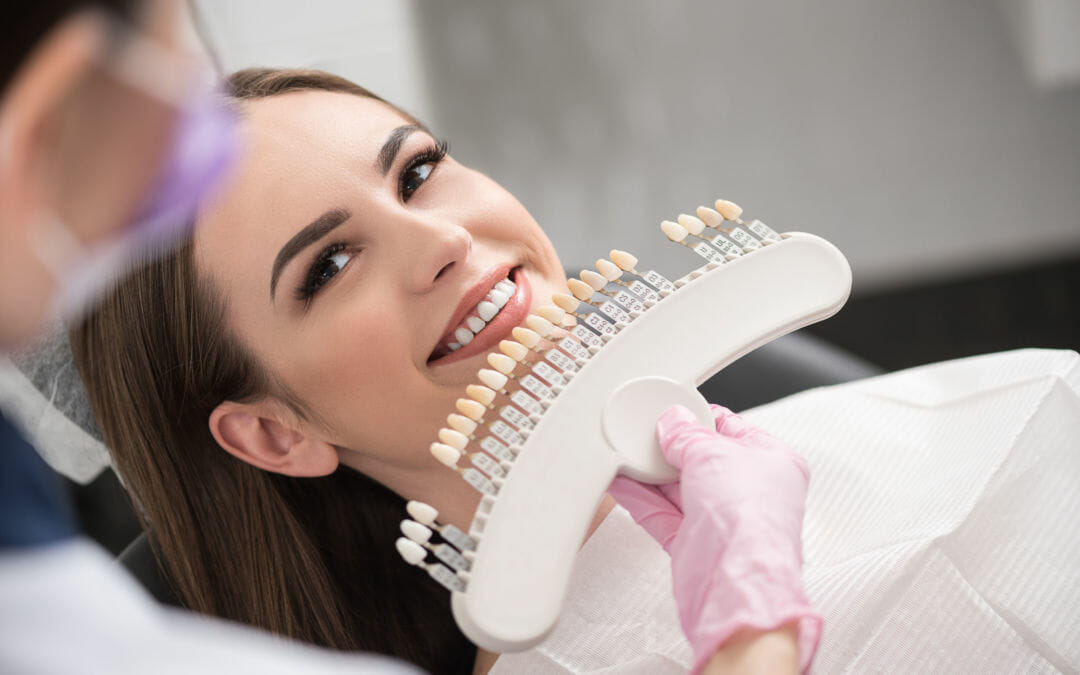There are many options for repairing your smile after one or just a few teeth are removed. Tooth extraction is usually the last resort, but sometimes the dentist must recommend it due to decay or damage. A crown is a semi-permanent way to fill in a small to medium-sized gap. Unlike removable partial dentures, crowns stay in place and act as the missing teeth for up to 15 years at a time.
Taking good care of dental crowns is the key to getting 15 years out of them rather than 5, which is the low end of the durability scale for most of the available materials. Following these five rules will prevent wear and tear while keeping the crown securely attached.
Repair Any Damage
If you suspect the crown has suffered damage, schedule an appointment with the dentist right away. Getting prompt repair of a loose, chipped, or otherwise compromised crown prevents further damage. Not only will it keep the crown intact and securely attached, but prompt repairs protect the surrounding teeth and gum tissue as well. If the teeth that anchor the crown in place become damaged by its movement or a sharp edge, it could become harder to install new crowns in the future. Regular checkups at the dentist will catch issues with crowns before they’re noticeable loose or chipped.
Avoid Hard, Sticky, and Chewy Foods
Those hard candies or chewy gummy bears may tempt you as a midnight snack, but they’re very hard on crowns. Temporary crowns in particular tend to crumble under the pressure of toffee, crunchy apples, or tough cuts of steak. The key to enjoying some of the same foods that might be a little hard on the crowns is often cutting the food up smaller and chewing it away from the dental work when possible. Very sticky or hard foods should be avoided altogether, but you may be able to find alternative dishes with the same flavors in softer textures. Many candies in particular, from soft caramels to crunchy rock candy, are tough on crowns of all types. Even ice is a problem if you crunch it rather than sucking on it.
You may also want to stay clear of staining foods and drinks like red wine, curry, and soy sauce. The materials used to make crowns are matched to your teeth at the time of the dental work, but they can’t be whitened or lightened without replacement. The material may stain more or less easily than the natural tooth surface, making the crown more obvious.
Wear a Night Guard
Nightguards aren’t just for people who are diagnosed with a tooth grinding problem. If you have any dental work that’s prone to damage like crowns or caps, a nightguard is the best way to keep them low on wear and tear. A lot of accidental contact occurs between teeth and crowns while you’re asleep and unable to keep track of how you’re moving your jaw. Custom fitted night guards aren’t just comfortable enough to sleep in, they’ll protect the crowns in particular to help them last longer.
Soft guards are generally recommended instead of hard designs since they put less pressure on the crown. However, this may vary depending on how your crowns are installed and where they’re located. Discuss your preferences with your dentist to figure out which type of nightguard will work best to protect your dental work.
Watch Out When Flossing
Flossing removes bits of food from between your teeth where the brush can’t quite reach. While you should continue to floss around the crowns and the teeth supporting them, take extra care to avoid snagging the material on the crowns themselves. It’s easy for the thin fibers of standard floss to become trapped between the crown and the tooth. Hold the floss close and make a C-shape to slide it gently around the crown rather than snapping it up and down against the sides. Small plastic tools are available to help thread floss around a crown without risking damage to it.
Prepare to Replace Them
While crowns are more permanent than many other options for replacing damaged or missing teeth, they aren’t capable of lasting your entire lifespan. It’s best to plan for replacing them once a decade and budgeting for that expense to get the best experience with them. Trying to wait another five to ten years when a crown is worn and needs replacement will only lead to issues with the dental equipment and the surrounding teeth.
Consider the long-term commitment to crowns and their replacements when planning out how the next few decades of your dental care will go. You may decide you’d like a long-lasting appliance like a dental implant, or an even more temporary solution like a short-term crown.
If you’re not sure what condition your crowns are in, schedule an appointment today with us here at Eastgate Dental Excellence. Our dental team can give you a thorough check-up and advise you on how you can improve your dental health as easily as possible.

